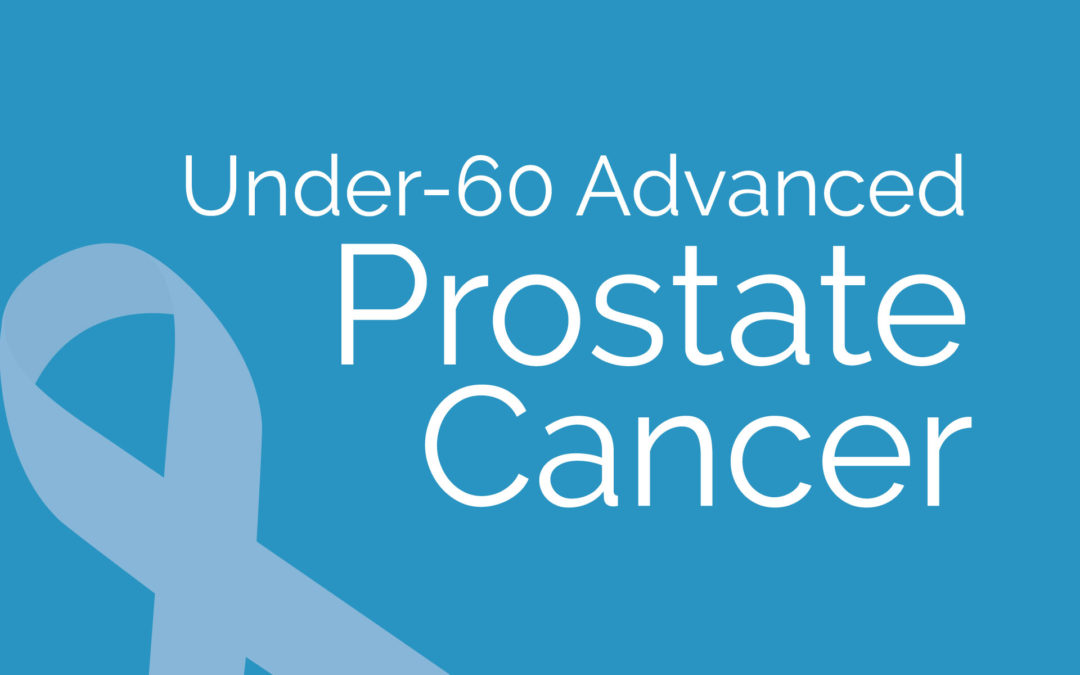
by Rick Davis | Feb 11, 2020
Back in mid-2012, the US Preventative Services Task Force first made the following recommendation with an associated D Grade:
The U.S. Preventive Services Task Force (USPSTF) recommends against prostate-specific antigen (PSA)–based screening for prostate cancer.
At the time, prostate cancer advocates objected strongly, warning it would result in many more men diagnosed de novo metastatic, and ultimately more disease specific deaths.
Sadly, we have seen this manifested, especially with respect to younger men. AnCan clearly sees the trend along with a lack of support for the particular needs expressed by younger men living with advanced prostate cancer.
——————————————————————————————————–
2nd Thursday of each month at 7 pm Eastern in The Barniskis Room (222-583-973)

by Rick Davis | Feb 11, 2020
Back in mid-2012, the US Preventative Services Task Force first made the following recommendation with an associated D Grade:
The U.S. Preventive Services Task Force (USPSTF) recommends against prostate-specific antigen (PSA)–based screening for prostate cancer.
At the time, prostate cancer advocates objected strongly, warning it would result in many more men diagnosed de novo metastatic, and ultimately more disease specific deaths.
Sadly, we have seen this manifested, especially with respect to younger men. AnCan clearly sees the trend along with a lack of support for the particular needs expressed by younger men living with advanced prostate cancer. Along with our partner, UsTOO, we have established an Under-60 Advanced Prostate Cancer Virtual Group to address these needs.
——————————————————————————————————–
2nd Thursday of each month at 7 pm Eastern in The Barniskis Room (222-583-973)

by Rick Davis | Feb 11, 2020
Back in mid-2012, the US Preventative Services Task Force first made the following recommendation with an associated D Grade:
The U.S. Preventive Services Task Force (USPSTF) recommends against prostate-specific antigen (PSA)–based screening for prostate cancer.
At the time, prostate cancer advocates objected strongly, warning it would result in many more men diagnosed de novo metastatic, and ultimately more disease specific deaths.
Sadly, we have seen this manifested, especially with respect to younger men. AnCan clearly sees the trend along with a lack of support for the particular needs expressed by younger men living with advanced prostate cancer. Along with our partner, UsTOO, we have established an Under-60 Advanced Prostate Cancer Virtual Group to address these needs.
——————————————————————————————————–
2nd Thursday of each month at 7 pm Eastern in The Barniskis Room (222-583-973)

by Rick Davis | Feb 11, 2020
Back in mid-2012, the US Preventative Services Task Force first made the following recommendation with an associated D Grade:
The U.S. Preventive Services Task Force (USPSTF) recommends against prostate-specific antigen (PSA)–based screening for prostate cancer.
At the time, prostate cancer advocates objected strongly, warning it would result in many more men diagnosed de novo metastatic, and ultimately more disease specific deaths.
Sadly, we have seen this manifested, especially with respect to younger men. AnCan clearly sees the trend along with a lack of support for the particular needs expressed by younger men living with advanced prostate cancer. Along with our partner, UsTOO, we have established an Under-60 Advanced Prostate Cancer Virtual Group to address these needs.
——————————————————————————————————–
2nd Thursday of each month at 7 pm Eastern in The Barniskis Room (222-583-973)

by Rick Davis | Feb 11, 2020
Back in mid-2012, the US Preventative Services Task Force first made the following recommendation with an associated D Grade:
The U.S. Preventive Services Task Force (USPSTF) recommends against prostate-specific antigen (PSA)–based screening for prostate cancer.
At the time, prostate cancer advocates objected strongly, warning it would result in many more men diagnosed de novo metastatic, and ultimately more disease specific deaths.
Sadly, we have seen this manifested, especially with respect to younger men. AnCan clearly sees the trend along with a lack of support for the particular needs expressed by younger men living with advanced prostate cancer. Along with our partner, UsTOO, we have established an Under-60 Advanced Prostate Cancer Virtual Group to address these needs.
——————————————————————————————————–
2nd Thursday of each month at 7 pm Eastern in The Barniskis Room (222-583-973)

